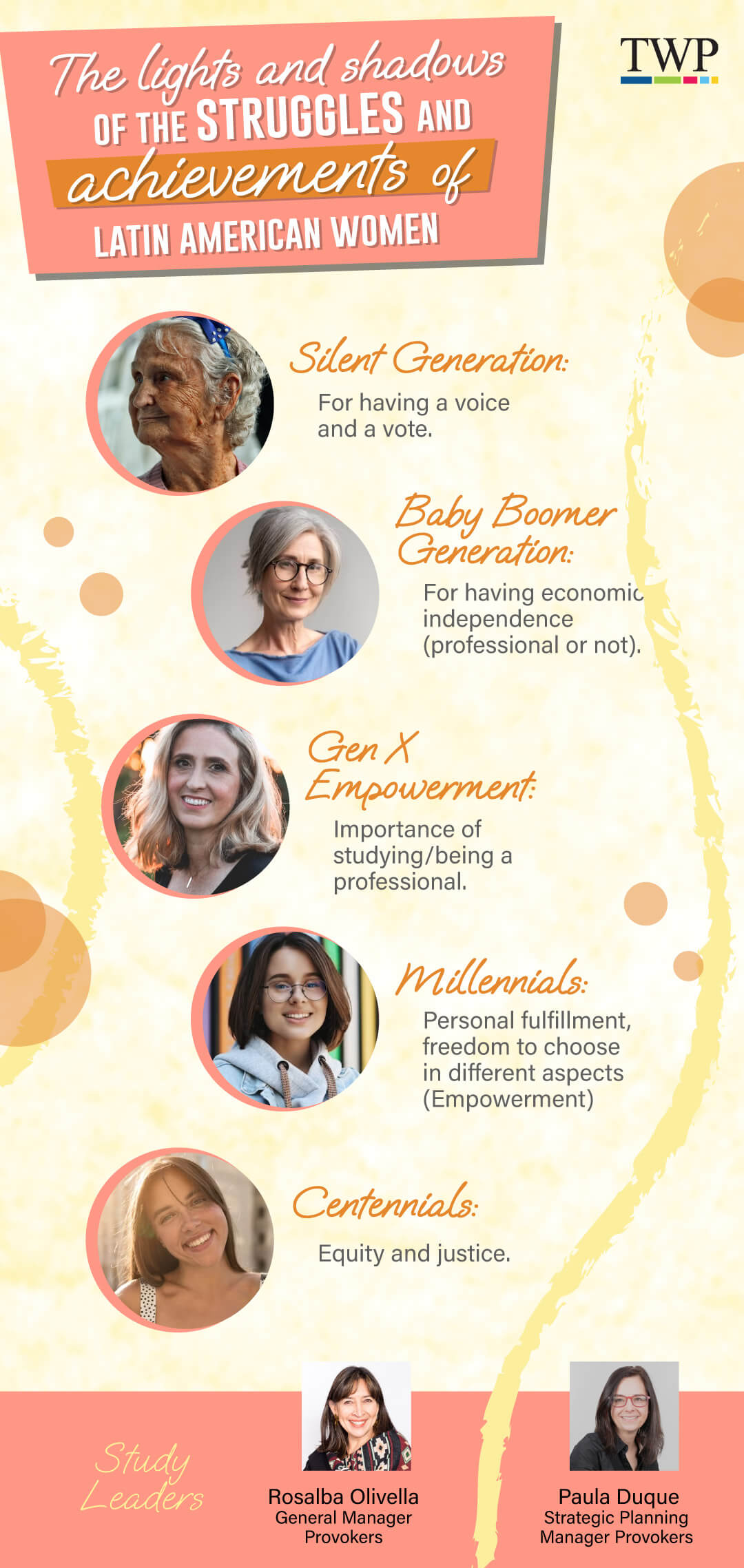The lights and shadows of the struggles and achievements of Latin American women
A study by the research agency Provokers provides clues to better understand the challenges faced by Latin American women

Ayda María Martínez Ipuz
Escucha este artículo
While the advances of women in both personal and professional aspects in Latin America are undeniable, some pressures may have future impacts. According to Provokers' research, "Women: their lights and shadows. A look at their struggles, contradictions, and achievements", women between 14 and 65 years old from countries in the region such as Bolivia, Chile, Colombia, Paraguay, and Peru, found that the discourse of empowerment generates a lot of pressure on them, without putting shared responsibility that men should have on the radar.
Read more content like this at: thewomanpost.com
For Latin American women, letting go of their role in the household is very complex; machismo itself has led them not to believe in men in household care roles, while they continue to act as providers. "Behind the lights, empowerment has disguised itself as a superwoman with a shadow of over-demandingness and the pursuit of perfection as a reason for pride, which has come at a very high cost. Society demands their traditional role, but also a productive role in which they assume all responsibility, they feel they should not cede ground to anyone and must maintain control in every area", explained Paula Duque Naranjo, Strategic Area Manager at Provokers.
The study, which looks at the private, intimate, and hidden world of women in the family, public, work, social, and political spheres, gathered information from over 2,000 Latin American women to get to the bottom of their desires and the stories behind their struggles to gain spaces for the recognition of rights, greater equity, and to connect with the value of being a woman.
"We have a more complete view of the Latin American woman and her role in society. Understanding her allows us to identify those spaces in which we can not only approach and participate in the role we have as brands but also support women and become active agents in the process of transforming society," says Rosalba Olivella, General Manager of Provokers.
The study reveals how social demands and their desire to be valued reveal the lights of conquests and gains in public life and the shadows of exhaustion, and loss of their inner balance (awareness, vulnerability, the desire to stop). It is thus that generation after generation, mothers have been changing their point of view regarding their position both in their homes and in society, but society does not advance at the same pace; there is always a feeling of rowing against the current or advancing alone towards the social well-being they seek.

Main results
60% generate income for the household, 45% take care of children and parents, siblings, or grandparents, and only allocate 9% of their income to themselves. Even so, they are women who recognize that what they have lived is worth it, and 74% consider themselves a happy person.
2 out of 3 women consider that they have good health, 50% declare having been diagnosed with physical health problems, and 45% with mental health conditions. They are critical of the system; 57% consider that it is more difficult for employers to work with women due to permissions related to childcare. Despite this, they are capable of projecting their own lives optimistically. 74% consider that they have a support network in their families
According to recommendations from the study, cultural and social productions should emphasize the shared responsibility of men and women and move away from the model of success tied to a solitary individual who does not need help. "8 out of 10 women surveyed agree that men should assume more responsibilities in domestic work and family care, beyond traditional tasks as providers. The demand for the construction of mass messages is high because we need to transform imaginaries that have existed for centuries in our society," Duque concluded.





